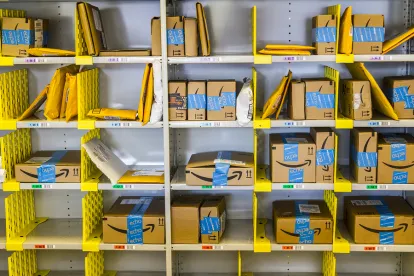The internet is an ever-changing medium for the online consumer marketplace. As technology changes, so does the scope of liability that can follow the stream of commerce. Whereas e-commerce opens doors for access to products, services, and the exchange of information, those doors can come with a price, and there is a new wave of case law that seeks to tag e-commerce platforms with some of that bill.
On Aug. 13, 2020, in a case involving a customer who was injured by a defective battery purchased from a major online retailer, the California Court of Appeal overturned a trial court ruling that had determined that the retailer was a mere provider of services for online marketplace sales and would not be subject to product liability for third-party products sold on its platform. (Bolger v. Amazon.com, Inc., Cal. Ct. App., 4th Dist., No. D075738). In effect, the online retailer could now be held liable for defects in third-party products sold on its website. The retailer has historically shielded itself from products liability claims for the sale of third-party products by dual arguments in terms of being a passive conduit service provider to consumers, and protections afforded under the Communications Decency Act of 1996, which holds that an internet service provider will not be held liable for publishing third-party content.
This new ruling holds that online retail platforms can be held strictly liable in California to consumers injured by defective products purchased through an online website. With a population of 40 million people and an increase in online sales since COVID “quarantining,” the exponential increase in potential liability in California is monumental. In Bolger , the Court of Appeal found that Amazon had placed itself in the chain of distribution of the product and was “pivotal” in bringing the product to the consumer, despite Amazon’s pleas that it lacks control over products on its marketplace. The Court doubled down by pointing out that all of Amazon’s actions that were more active than passive – it constructed the website, accepted the name-brand company as a third-party seller, marketed the product for sale, controlled the conditions of the product sale on its online platform, limited the brand-name company’s access to Amazon’s customer information forcing the company to only communicate with consumers through Amazon, took possession of the product, accepted the consumer’s order for the product, billed the consumer for the purchase price and ultimately shipped the product to the consumer in Amazon-branded packaging. Of course, the same could likely be said about many, if not most online retailers.
The ruling could also expand to other states where similar cases have been decided with the same issue framed on appeal. See for example, in Pennsylvania, Arizona, and Tennessee with similar issues pending in Ohio and Texas:
-
Pennsylvania case Oberdorf v. Amazon involving a defective dog collar that triggered a retractable leash damaging consumer’s eye (Amazon found to be a product seller and subject to PA strict liability).
-
Arizona case State Farm v. Amazon regarding defective hoverboards (Amazon platform ruled not a retail “seller”).
-
Tennessee case Fox v. Amazon dealt with a hoverboard purchase (Amazon may be held liable due to warning email it sent to customers re safety issues).
The Aug. 13, 2020, California Court of Appeal decision demonstrates that case law is generally evolving regarding the scope of liability for online retailer platforms and the increasing trend to extend liability where such companies were previously protected.
Whereas some online retailers may be equipped to address the increase of claims and sort out liability in vendor agreements, smaller online “resell” platforms may be forced to weather the storm of a barrage of new lawsuits and increased liability, particularly where the primary product manufacturer or distributor cannot be held responsible either by lack of jurisdiction or contractual coverage issues. The Court of Appeal felt this way in ruling that Amazon may be the only member in the stream of distribution reasonably available to an injured consumer. In effect, the ruling means that an enormous portion of the retail economy will now be properly subject to strict liability for defective products. If the “passive retailer” rule is abrogated for online retailers, it may only be a matter of time before plaintiffs seek to overturn that rule for brick and mortar retailers.
Amazon will most likely appeal the decision. In the meantime, the floodgates may start to open, and companies that offer similar online services will need to assess their exposure to liability and any company that sells or distributes products on such platforms as the cost of doing business may increase significantly. In California, the legislature is considering a bill treating “electronic retail marketplaces” like retailers for California strict liability law purposes. This statute may answer some questions about the allocation of liability to electronics, but that will not account for the multitude of non-electronic products purchased from online retailers.
In 2019, California was deemed the fifth largest economy in the world. The recent Court decision could impact any company, regardless of where it is located, that does business in California through sales, distribution or shipment through an online platform. Additionally, this decision will likely be cited in other states that have appeals pending on similar issues.



 />i
/>i
